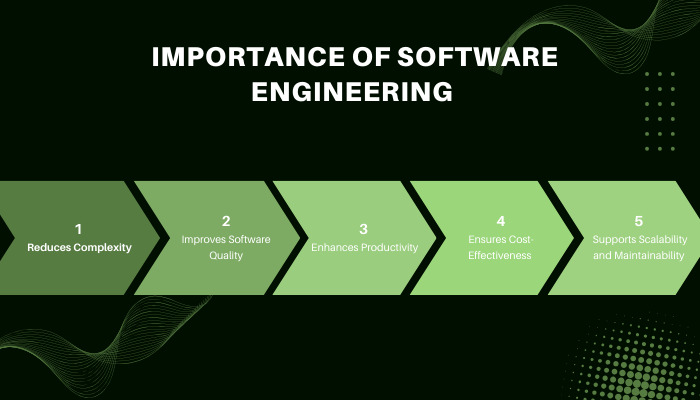In today’s digital world, software is an essential part of our daily lives. From mobile applications to websites and enterprise solutions, software powers almost everything around us. But have you ever wondered how these applications are built? So Let’s start with an introduction to software engineering tutorial.
What is Software Engineering?
Software engineering is the systematic approach to designing, developing, testing, and maintaining software. It applies engineering principles to ensure that software is reliable, efficient, scalable, and meets user needs.
According to IEEE (Institute of Electrical and Electronics Engineers), software engineering is:
“The application of a systematic, disciplined, and quantifiable approach to the development, operation, and maintenance of software.”
Why is Software Engineering Important?

Software engineering plays a crucial role in technology and business. Here’s why:
1. Reduces Complexity – Software engineering follows structured methodologies that simplify the development process.
2. Improves Software Quality – It ensures that the final product is reliable, secure, and performs well.
3. Enhances Productivity – Using engineering principles and best practices, software can be developed faster and more efficiently.
4. Ensures Cost-Effectiveness – Proper planning and testing reduce errors, which saves money in the long run.
5. Supports Scalability and Maintainability – Well-designed software can be easily updated and expanded to meet future needs.
Key Principles of Software Engineering
To develop high-quality software, engineers follow several key principles:
Modularity – Breaking software into smaller, manageable components.
Reusability – Using existing code to reduce development time and effort.
Scalability – Ensuring software can handle future growth.
Security – Protecting software from vulnerabilities and attacks.
User-Centered Design – Creating software that is intuitive and easy to use.
Correctness – Software should meet all specified requirements and perform as intended.
Careers in Software Engineering
Software engineering offers numerous career opportunities, including:
Software Developer – Writes code and builds applications.
Average salary:- ₹6 Lakhs and ₹14 Lakhs
Software Tester – Ensures software quality by identifying bugs.
Average salary:- : ₹4,50,000 – ₹7,00,000
System Analyst – Analyzes user needs and suggests software solutions.
Average salary:- ₹3,00,000 to ₹27,00,000
DevOps Engineer – Manages software deployment and maintenance.
Average salary:- ₹8,13,000 to ₹12.5 lacs
Data Engineer – Works with big data and databases.
Average salary:- ₹5 lakhs and ₹20 lakhs
A – Software engineering is the systematic approach to the development, operation, maintenance, and retirement of software.
A- It ensures the creation of high-quality, reliable, and efficient software systems within time and budget constraints.
A – Programming is about writing code, while software engineering involves planning, designing, and managing the entire software development lifecycle.
A – Good software is reliable, efficient, maintainable, secure, and user-friendly.
A – A software process model is a structured framework used to plan, manage, and control the development of a software system.
Conclusion
Software engineering is a vast and exciting field that drives technological innovation. Whether you’re a beginner or an experienced programmer, understanding its principles can help you build more reliable software. If you’re interested in a tech career, learning software engineering is a great starting point!
I hope you understand the introduction to software engineering tutorial. So don’t forget to share this post with friends and anyone preparing for the GATE, UGC NET exams, or studying at the university.



